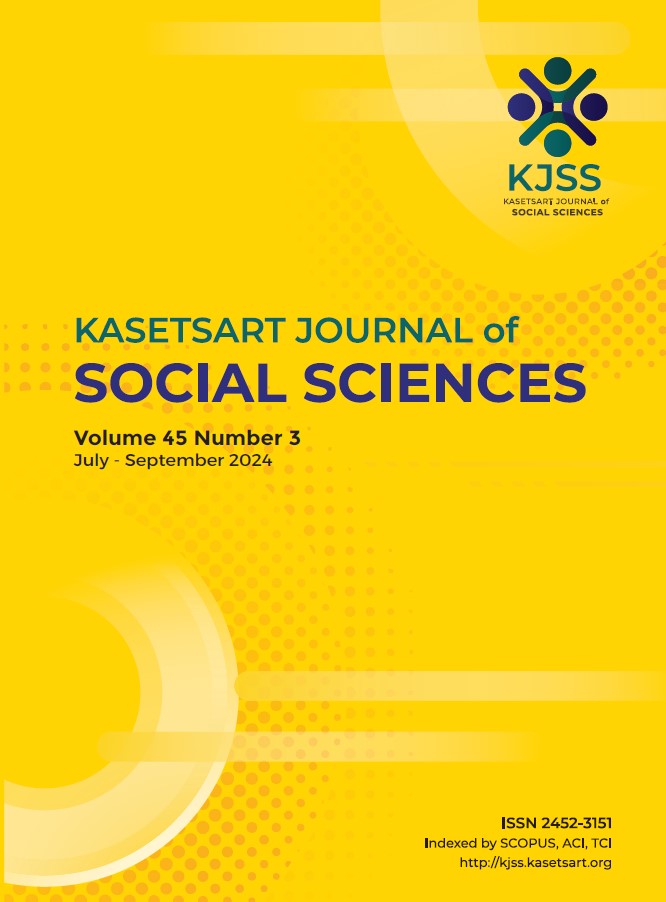The influences of sense of integrity on acts of integrity and work behaviors among personnel of a public university
Keywords:
acts of integrity, sense of integrity, university personnel, work behaviorsAbstract
The purpose of this study was to investigate the influences of university personnel’s sense of integrity on their acts of integrity, as well as positive and negative work behaviors. In this study, the sample was selected using stratified random sampling with types of employment as the criterion for stratification. The sample comprised two groups: university personnel and their supervisors. To ensure comparability, questionnaires from both groups were coded with identical numbers, yielding a total of 738 questionnaires from each group for data analysis. Research instruments included scales for measuring sense of integrity, acts of integrity, positive work behaviors, and negative work behaviors. The research hypotheses were tested through path analysis using AMOS version 29. The results revealed that sense of integrity directly and significantly impacted acts of integrity (β = .24, p < .01). Although sense of integrity did not directly affect positive and negative work behaviors, it had significant indirect effects on positive work behaviors (β = .21, p < .01, R2 = .77) and negative work behaviors (β = -.10, p < .01, R2 = .19) through acts of integrity. Additionally, acts of integrity directly and significantly influenced positive work behaviors (β = .88, p < .01) and negatively impacted negative work behaviors (β = -.45, p < .01). These findings suggest that promoting integrity in organizations involves enhancing employees’ sense of integrity and encouraging acts of integrity among them.
Downloads
Published
How to Cite
Issue
Section
License
Copyright (c) 2024 Kasetsart UniversityThis is an open access article under the CC BY-NC-ND license http://creativecommons.org/licenses/by-nc-nd/4.0/










